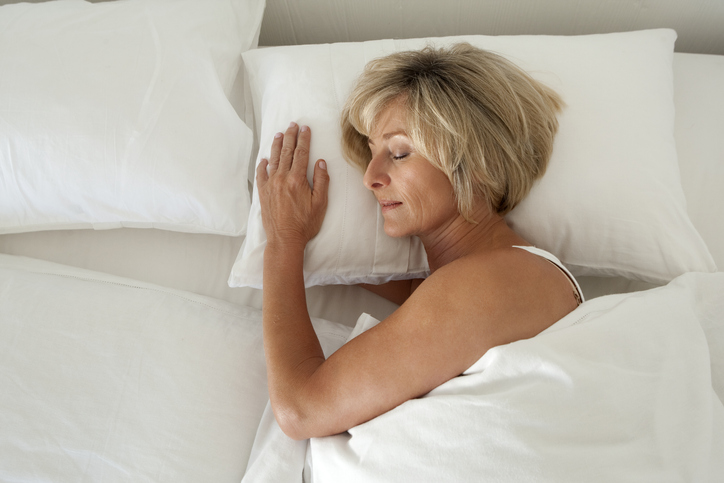A Lack Of Sleep Is A Big Deal, Especially For Boomers

To me, sleep is one of the six “doctors” we all need to maintain our health and be happy.
“The function of sleep has mystified scientists for thousands of years, but modern research is providing new clues about what it does for both the mind and body. Sleep serves to reenergize the body's cells, clear waste from the brain, and support learning and memory. It even plays vital roles in regulating mood, appetite and libido,” according to one source.
When considering how bad or cranky we may feel after not getting sufficient sleep, this comes as no surprise to me. I definitely need at least seven hours of sleep per night (as recommended for most adults) to feel my best as well as perform at my best.
For older adults, getting those seven hours may be challenging (especially for those who are 65 and older). According to the National Institutes of Health (NIH), sleep problems are common in older adults due to a variety of possible issues such as chronic pain, frequent urination at night, chronic disease such as heart failure and depression.

Perhaps even more concerning is that a recent study conducted by the John Hopkins Bloomberg School of Public Health found evidence which suggested that in older adults, insomnia may increase the risk of having difficulty overcoming depressive symptoms.
According to the National Alliance on Mental Illness, depression affects more than 6.5 million of the 35 million Americans aged 65 and older. It can be difficult to identify the cause or causes of sleep issues and depression. Is someone depressed because they are not sleeping well? Or is this person not sleeping well because they are depressed? Which comes first?
Researchers of the study looked at data of nearly 600 people over age 60 who went to primary care centers in New York City, Philadelphia and Pittsburgh. All of these people had “some level of depression,” according to one report discussing the study.
(Depression comes in many different forms. To read about some common types of depression, click here).
“Compared to patients whose sleep improved, those with worsening sleep problems were about 28 times more likely to be diagnosed with major depression at the end of the 12-month study,” the reports states.
Furthermore, the results revealed that for the people whose sleep got worse, they had almost 12 times the odds of minor depression and were 10 percent more likely to report having suicidal thoughts.
“We can’t say that the sleep disturbances we’re seeing are necessarily causing the poor depression outcomes,” said one of the lead researchers, in the report provided by John Hopkins.
“But the results suggest that older adults who are being treated for depression and whose sleep problems are persistent or worsening need further clinical attention. They also suggest that treating sleep problems should be explored further as a potential means to improve depression outcomes in older people—as well as the poor cognitive and general health outcomes that have been tied to disturbed sleep in this population.”
So if you are a boomer or older, do not overlook sleep problems.
Fortunately, there are many things you can do in your daily life in order to help ensure you will get those seven to eight hours of sleep every night. And what’s so great about these lifestyle habits is that they are similar to those recommended for preventing and treating depressive symptoms. Here are a few of them:
- Maintain a balanced, nutrient-rich diet (it is also important to take routine nutrient tests. The Boomer and up group is especially prone to nutrient imbalances and deficiencies).
- Be physically active, (don’t forget to fuel your body properly both before and after physical activity.
- Drink alcohol in moderation (if at all).
- Consider being a dog owner if you are not already.
- Avoid smoking at all costs.
- Manage chronic pain (cryotherapy, CBD and magnesium may be very effective tools)
- Manage stress (a healthy diet and exercise can really help alleviate stress. You can also try yoga, aromatherapy and meditation).
Also consider putting plants in your bedroom and home. And finally, speak with a competent healthcare professional about your sleep issues. The root of your issues may be due to taking certain medications or from having an existing health issue such as obesity or diabetes.
Enjoy your healthy life!
The pH professional health care team includes recognized experts from a variety of health care and related disciplines, including physicians, attorneys, nutritionists, nurses and certified fitness instructors. This team also includes the members of the pH Medical Advisory Board, which constantly monitors all pH programs, products and services. To learn more about the pH Medical Advisory Board, click here.







